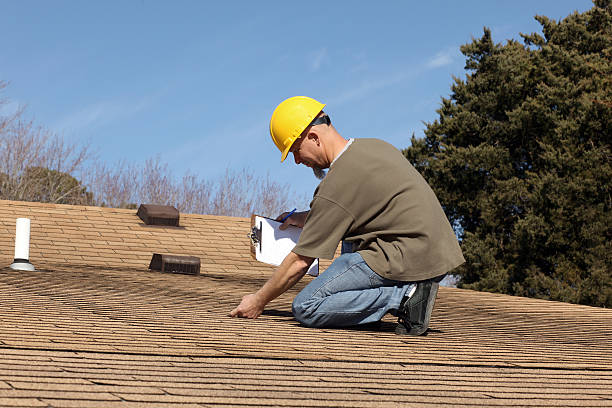Your roof is more than just a protective shield over your head; it’s vital to your home’s integrity. Yet, it often goes unnoticed until a problem arises.
Have you ever wondered how often you should be checking up on your roof? Well, the first thing you need to be aware of is the frequency at which you will need to inspect your roof depends on some factors.
Read on to find out about these factors and everything you need to know about inspecting your roof.
What Is a Roof Inspection?
A roof inspection thoroughly examines all the elements that make up your home’s roof. While your roof may not always be at the forefront of your thoughts, it is a system that demands regular inspection to maintain peak performance.
Roofing inspection tasks are typically entrusted to trained roofing professionals, someone well-versed in the intricacies of roof assessment. Licensed roof inspectors are ideally suited for this role, as they adopt a meticulous approach to gauge your roof’s quality. They are your go-to experts for navigating the many facets of roof-related home ownership.
After all, roof inspections aren’t just a matter of routine; they are a prerequisite for certifying the state of your roof. Roof certifications offer valuable insights, especially for prospective homebuyers. They provide a means to gauge a home’s roof’s condition and projected lifespan.
In essence, a roof inspection is your ticket to maintaining a sturdy and dependable roof over your head, and it’s a crucial step in preserving your home’s overall integrity.
How Often Should You Have Your Roof Inspected?
It is very important to figure out how often you should inspect your roof. Here’s a simple guideline to help you plan your roof inspections:
-
At Least Annually, Ideally Bi-Annually:
It is advisable to schedule professional roof inspections at least once yearly, with an ideal frequency of twice yearly. Consider timing these inspections in the spring and fall seasons.
This strategic approach helps you prepare your roof for the challenges that harsher weather may bring.
-
After a Major Weather Event
Beyond routine inspections, some instances warrant immediate attention. Severe weather conditions such as high winds, heavy rain, hail, snow, or ice can damage your roof.
Sometimes, even minor hail can cause harm to your roofing materials. Sometimes, external damage might not be readily visible. They conceal issues like loose shingles, missing granules, or hidden leaks.
After a major weather event in your area, it’s wise to follow up with a roof inspection to assess how well your roof has weathered the storm.
-
If You Notice Damage
Vigilance is key to roof maintenance. If you happen to spot signs of roof damage at any time, it’s important that you quickly schedule a professional inspection.
These seemingly small issues can indicate more substantial underlying problems, whether it’s a missing shingle or dented siding. Hence, you must act swiftly to prevent minor issues from compromising the interior of your home.
Factors That Determine How Often You Should Have Your Roof Inspected
Below are some of the factors that tend to determine how often you need to inspect your roof.
-
Weather Conditions
The weather can exert a significant influence on your roof’s health. After a major storm featuring high winds, hail, or flying debris, scheduling an immediate professional roof inspection becomes necessary.
Inspectors will diligently scrutinize your roof for common issues such as missing, broken, or curling shingles and any gaps in your roof’s protective membrane.
Additionally, they will check for loose or damaged flashings, potential attic leaks, and compromised ridge vents.
-
Age of Roofing Material
The age of your roofing material is a vital factor. Older roofs may require frequent inspections as they are more susceptible to wear and tear.
Conversely, newer roofs may not need as frequent inspections. Nevertheless, you should adhere to a regular inspection schedule to catch potential issues early.
-
Tree Coverage
Homes surrounded by dense tree coverage may need more frequent inspections due to the risk of falling branches and debris. Overhanging branches can also rub against and damage roofing materials. All of these conditions necessitate more regular checks.
-
Previous Roofing Issues
Consider more frequent inspections if your roof has a history of problems or has undergone repairs. Frequent inspections will help ensure the previous issues have been fully resolved and help you catch any emerging issues.
Schedule A Roofing Inspection with Shoreline Roofing
At Shoreline Roofing, we specialize in comprehensive roofing inspections and maintenance. Our skilled professionals are ready to ensure that your roof remains steadfast and dependable. Don’t wait for problems to escalate; be proactive in safeguarding your home. Contact us today to schedule your next roofing inspection.

